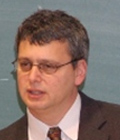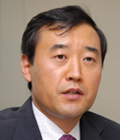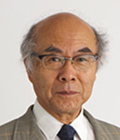Speakers and conference papers

Antonio García-Padilla was born in Coamo, Puerto Rico. He received his law degree from the University of Puerto Rico in 1978 and a Master in Law from Yale University in 1981. Before becoming the Eighth President of the University of Puerto Rico, in November 2001, García-Padilla was Dean of the School of Law at the same university for fifteen years, President of the Luis Muñoz Marín Foundation of Puerto Rico, Member of the Council of the American Law Institute, and Member of the Accreditation Committee of the American Bar Association. Earlier in his career he was law clerk to Judge Stephen G. Breyer, now Associate Justice of the Supreme Court, then serving as a Judge in the Federal Court of Appeals for the First Circuit, and to Justice Angel M. Martín of the Supreme Court of Puerto Rico. He was an Adviser to the Chief Justice of the Supreme Court of Puerto Rico, Dr. José Trías Monge. During his tenure as President of the University, García-Padilla launched an ambitious agenda of institutional development at the University of Puerto Rico. He returned to his Chair in October 2009 as Dean Emeritus of the School of Law. He teaches courses and seminars in Civil Procedure, Constitutional and Commercial Law. He is the President of the Puerto Rico Academy of Jurisprudence and Legislation. Garcia Padilla is author of many essays on legal and education issues in Puerto Rico and abroad.
Speech Title: From Manufacturing to Research: Tax Policy Issues in Puerto Rico
For decades, the Commonwealth of Puerto Rico relied on tax incentives to promote itself as a manufacturing hub for pharmaceutical and medical devices. As it encountered the tensions of the 21st Century, Puerto Rico realized that manufacturing alone cannot secure future economic success. Competition from the world’s emerging economy in Asia and Latin America was becoming stronger every day. China and India are capable of producing drugs with the same level of proficiency and at lower costs. Further, the pipeline for big blockbuster drugs is rapidly drying down. To maintain its role in the global health market, Puerto Rico realized that it must use its trained people not only to manufacture, but to research, design, develop and test products. From the 1970’s on, in positioning itself as manufacturing hub, Puerto Rico relied on the fiscal autonomy that its current political status grants to the Island, and aggressively exempted from income and other taxes the profits that the pharmaceutical and medical devices companies generate in Puerto Rico. As the Island seeks to emigrate from manufacturing to research and development, the tax issues are different. Income tax incentives are not relevant for research centers since research centers are cost centers, not profit centers. Puerto Rico then turned to a new experiment in tax policy: tax exemptions for the personal income of highly competitive researchers living and working in the Island. Thus, Puerto Rico moved to attract and retain in Puerto Rico competitive researchers and to create incentives for non-competitive scientists already living in Puerto Rico to move into more competitive projects. Professor Garcia-Padilla explains the tax measures adopted by the Commonwealth Puerto Rico towards that end, and also explores the potential developments in such policies as they are implemented in the years ahead.

Professor Y.S. Lee is currently heading the Law and Development Institute. He has taught at law schools and business schools throughout the United States, Asia, and Australia, and practiced law at government and leading law firms internationally. He graduated in economics with academic distinction from the University of California at Berkeley and studied law at the University of Cambridge. Author of Reclaiming Development in the World Trading System (Cambridge University Press, 2009), Safeguard Measures in World Trade: The Legal Analysis (Kluwer Law International, 2007), and Economic Development through World Trade: A Developing World Perspective (Kluwer Law International, 2008), Professor Lee has published widely in the areas of international trade law and economic development with leading publishers in the United States, Europe and Asia. His recent work has been focused on the impact that domestic and international legal systems, particularly the legal framework for international trade, has on economic development. He is currently an associate editor of the Journal of World Trade and the founding editor-in-chief of the Law and Development Review.
Presentation Title: Microtrade An Overview
Poverty remains a serious global issue, and nearly half of the world’s populations are still living below the poverty line. International trade has been a vehicle for successful economic development for some developing economies in East Asia, including South Korea, Taiwan, Hong Kong, Singapore, and more recently, China. With the success of their trade-based economic development policies and the export-driven development strategy, all of these countries escaped from poverty. Can other developing countries duplicate this success and also bring their populations out of poverty? Some factors, including political stability, organized government support, educated workforce, availability of foreign markets, and financial resources such as foreign loans, have been considered essential for the success of this export-driven economic development strategy. These factors are not present in many developing countries, particularly least-developed countries (LDCs), thus making it difficult for them to pursue successful trade-based development policies to break the circle of poverty. Professor Lee suggests “microtrade,” defined as international trade of small quantities of locally-produced products (LPPs) produced on a small scale, as an alternative way to provide those living in LDCs with income sufficient to reduce or eliminate poverty. Microtrade, unlike the export-driven development policies undertaken at a national level, is not based on the development of large-scale export industries, which cannot be initiated by many LDCs. This article provides a discussion of the theoretical basis of microtrade and its regulatory framework from the perspective of international trade law.

Farid Shirazi, B.Eng., MSc. CS, Ph.D. is a Senior Researcher at Institute for Innovation and Technology Management (IITM) and Assistant Professor at Ted Rogers school of Information Technology Management, Ryerson University, Toronto, Canada. Dr. Shirazi’s research focuses mainly on the impact of ICTs on social and economic developments within the context of developing countries. His research interests include also the impact of ICTs on environmental sustainability as well as the ethical and security perspectives associated with the introduction and use of ICTs in particular the e-government strategies. He has published in several journals and conference proceedings including LNCS book chapters; Associations for Information Systems; Electronic Journal of Information Systems in Developing Countries; Journal of Telematics & Informatics; Journal of Information, Communication & Ethics in Society; Journal of Global Information Management (JGIM) and Journal of Information & Management (I&M).
Presentation Title: Virtual Bazaar: An E-Commerce Model to Help Microtrade in Least Developed Countries
It has been argued that Information and Communication Technology (ICT) applications can support sustainable development in the areas such as public administration, business, education and training, health, employment, environment, agriculture and science. In particular ICTs is considered as promising tools for poverty alleviation in developing countries according to the United Nations Millennium Development Goals. Virtual Bazaar (VB) is an e-commerce based technology adapted to the existing level of ICT infrastructure in LDCs. This technology will enable small business owners to sell their products directly to retailers, who in turn sell the end products to international customers without going through third party channels or different agents. Professor Shirazi discusses barriers that impede the development of micro-trade in LDCs along with the opportunities provided by VB technology.

Dr. Gupta is currently working as a Research Associate at Jindal Global Law School, O.P. Jindal University, India. She is associated with the Centre for Global Governance and Policy and is Managing editor of Jindal Global Law Review. She holds an L.L.M. degree in “Law in a European and Global Context” from Universidade Católica Portuguesa, Lisbon, Portugal. She pursued her LLB (Bachelor of Law) and B.A. History (Hons.) from University of Delhi, India. Her areas of specialisation include International Trade Law, European Union Law- Constitutional Foundation and Law of Internal Market, Global Governance and Constitutional Law beyond the State.
Presentation Title: International Microtrade Regime – Structure and Financing
Dr. Gupta explores the contours of an efficient microtrade regime, as a tool for poverty alleviation in LDCs and developing countries. The paper deals with two fundamental aspects of microtrade. First, it proposes a legal and institutional framework which would provide a strong substratum for conduct of microtrade. A classificatory mechanism is also proposed in order to enlist products whose trade would receive favorable treatment under a comprehensive microtrade regime. Second, the paper explores the financing of the proposed microtrade regime through microfinance. A study of operation of micro-credit in India is undertaken in order to highlight the problems which have recently emerged in the microfinance sector. The scale of these problems has led the State of Andhra Pradesh to propose a bill, regulating microfinance in the state. Lessons from this experience need to be incorporated in the proposed micro-credit system in order to move towards a foolproof system of financing microtrade.

Dr. Andreas Neef is Professor of Resource Governance and Participatory Development at the Graduate School for Global Environmental Studies, Kyoto University. He holds a PhD degree in “Agricultural Sciences” and a Post-Doctorate Degree in “Social Sciences in Agriculture”, both from the University of Hohenheim, Stuttgart, Germany. He has extensive field research experience in Southeast Asia, West Africa and the Middle East. His research focuses on participatory approaches to agricultural and environmental research, rural innovation processes, supply-chain and network analysis, decentralization of natural resource governance, and local adaptation to climate change.
Presentation Title: Community-Based Microtrade in Support of Small-Scale Farmers in Thailand and Tanzania
Drawing on two action-research projects conducted between 2007 and 2011, this paper compares the benefits of pro-poor microtrade arrangements for smallholder lychee growers in northern Thailand and small-scale vanilla growers in northwestern Tanzania. The case studies combine various qualitative and participatory research methods with an in-depth analysis of the underlying social, economic and knowledge networks. Our findings suggest that community-based microtrade with high-value agricultural products can be particularly beneficial for small producers and marginalized groups, such as women and the elderly. Evidence from the comparative study of the two cases further underscores the importance of external knowledge and innovation intermediaries in the formation of community-based and pro-poor microtrade arrangements. Theoretically, our research expands the concept of strategic niche management, which emphasizes experiential learning, networking and the convergence of expectations among producers, exporters, consumers and supporting agencies. We conclude that long-term knowledge and innovation partnerships need to be established to successfully connect smallholder farmers to international markets and to carefully balance the power differentials among all actors along the supply chain.

Professor Picker is an Associate Professor at the Law Faculty of the University of New South Wales. His fields of research include International Law, International Economic Law and Comparative Law. His work of recent years has involved efforts to bring these three fields together in an ongoing comparative law examination of international law. In addition to publishing numerous articles and book chapters covering those three fields, he is a co-author of one of the leading comparative law textbooks in the United States, as well as co-editor of many collections on international economic law. Professor Picker was one of the two co-founders of the Society of International Economic Law, and is today an Executive Vice President of that society. He is also on the Executive Board of the American Society of Comparative Law. Before taking his position at UNSW, he was the Daniel L. Brenner/UMKC Scholar and Professor of Law at the University of Missouri Kansas City School of Law in the United States. Professor Picker is a graduate of the Yale Law School, and following a judicial clerkship on the U.S. Second Circuit Court of Appeals was an associate attorney in the International Group of Wilmer, Cutler & Pickering in Washington, D.C.
Presentation Title: Microtrade and the Legal Cultural Considerations
Professor Picker presents many legal cultural issues that arise as a result of efforts to implement IEL at the micro-level. The legal cultural issues would apply to all aspects of IEL at the micro-level, including in micro-trade, micro-investment, micro-finance, and micro-insurance. Those legal cultural issues are associated both with the larger IEL fields and institutions as they scale down to the micro-level, as well as with the legal cultural issues of the recipients and individuals engaged in the micro-IEL transactions and activities. This paper will consider the issues from both the theoretical and practical perspectives, using examples throughout to illustrate the legal cultural issues discussed.

Currently a lecturer at school of law, University of the Thai Chamber of Commerce, Dr. Prapanpong Khumon finished his master’s degree in Law from University College London in 2006 and received his PhD from Queen Mary, University of London in fall 2011 in a thesis emphasizing on the interaction between law and the Fair Trade Movement. Before joining the profession in academia, he has previously worked in a Thailand Regional Office of the United Nations High Commissioner for Refugees in 2004. His research interests include law and the Fair Trade Movement, CSR, and law and development in developing countries.
Presentation Title: Microtrade and the Fair Trade Movement
As a current system of international trade has undergone a widespread criticism of disparaging the global poor rather than nourishing them, the Fair Trade Movement is increasingly seen as a proposal for a new trading regulation using consumer demands in Fair Trade products to assert an ethical force towards Northern businesses to act responsibly towards impoverished people in the South. The movement promotes microtrade of small-scale commodity producers globally who are given opportunity to set up producers’ cooperatives and organize market channels, which in turns provide them with self-empowerment and realization of capability to gain income and social acceptance. Dr. Khumon assesses the extent to which the movement represents benefits as well as difficulties to the poor producers judging from the evidence in participating regions around the globe including windows of opportunities for South East Asian producers where knowledge about the Fair Trade Movement is still unaccustomed.

Sophie Smyth is an Associate Professor of Law at Beasley School of Law, Temple University, Philadelphia, where she teaches International Financial Law, International Development Law and Policy, and Contracts. Prior to joining Temple Law School, Professor Smyth was a Senior Counsel in the Legal Vice Presidency of the World Bank. Professor Smyth’s research focuses on norms, principles and modalities for collective action in development finance. She holds a B.A. from Trinity College, Dublin, a B.C.L. from Oxford University, England, and an L.L.M. from Georgetown University Law School. Following her graduation from Georgetown, she served as Judicial Clerk for the late Judge Hugh Bownes on the Court of Appeals for the First Circuit.
Presentation Title: Multilateral Development Finance
The institutions that dominate the current order of multilateral development finance, the United Nations (“UN”) and the World Bank, are undergoing a crisis of confidence as the world’s development aid donors engage in an ongoing quest to find alternatives to them. This quest takes the form of setting up numerous funds narrowly tailored to finance specific, narrowly-defined needs, including the Global Environment Trust Fund (GEF), the Global Fund to Fight HIV Aids, Malaria and Tuberculosis, and the Climate Change Fund, proposed in the December 2009 Copenhagen Accord (and recently renamed the Green Climate Fund). The funds that have been created fill a need but suffer from several deficits, ranging from governance gaps and lacunae in accountability, to high transaction costs and uncertain status in the international political and legal order. These deficits generate new risks and costs for the international aid architecture. Professor Smyth argues that the time has come to re-design the interrelationship between these special purpose funds and the UN and the World Bank so that these funds can operate in sync with these institutions rather than as bypasses of them.

Christine Hurt is a the Guy Raymond Jones Faculty Scholar and Professor of Law at the University of Illinois College of Law, where she co-directs the Illinois Program for Business Law and Policy. Professor Hurt’s research focuses on federal securities law, including initial public offerings and securities fraud, as well as law and finance. She also teaches in the area of securities regulation, business associations and corporate tax and teaches a seminar on Law and Microfinance. Before entering law teaching, Professor Hurt practiced for a number of years at Baker Botts L.L.P. and Skadden, Arps, Slate, Meagher & Flom LLP, where she specialized in international project finance.
Presentation Title: Securitization, Reckless Credit and Systemic Risk: Microfinance Meets Bubble Regulation
Recently, stories of overborrowing, aggressive debt collection and even suicides have caused government actors and the media to characterize as predatory lending the practice of microfinance, once heralded as a way to lift communities out of poverty. As part of this microfinance backlash, critics have analogized microfinance to U.S. subprime mortgage lending and warned of a microfinance “bubble” in which a disconnect between primary lending and secondary investment increased housing prices and decreased lending criteria. In the U.S., many blame the housing bubble, and resulting economic crisis, on the securitization of residential mortgages, particularly subprime mortgages, and exotic investment vehicles such as collateralized debt obligations (CDOs). A microfinance bubble may be too far on the horizon to see; however, a microfinance bubble may have the potential to create the same ills as the mortgage bubble created: borrower defaults, investor losses and even increased systemic risk. The U.S. subprime mortgage market became so large and interconnected that when housing prices plummeted, so did the market and large parts of the U.S. economy. Some commentators have argued that a microfinance disaster may have the same sorts of ripple effects in an economy, particularly when many borrowers in the same geographical region depend on microfinance borrowing and when microfinance institutions are regulated inconsistently, resulting in great variance in prudential soundness. Professor Hunt explores whether the mortgage crisis gives any insights into regulating against a potential microfinance bubble.

Professor David A. Gantz is Samuel M. Fegtly Professor of Law and Director of the International Trade and Business Law Program at the University of Arizona, James E. Rogers College of Law in Tucson, Arizona, and serves as Associate Director of the National Law Center for Inter-American Free Trade. He is a graduate of Harvard College and Stanford Law School. Professor Gantz served with the U.S. Agency for International Development law reform project in Costa Rica and as a law clerk with the U.S. Court of Appeals for the 9th Circuit. At the Office of the Legal Adviser, U.S. Department of State, from 1970-1977, he was the chief lawyer responsible for Inter-American affairs. From 1977-1993, he practiced international trade and corporate law in Washington, D.C. He joined the law faculty at Arizona in 1993. He has served as a binational panelist under the dispute resolution provisions of the CFTA and NAFTA and has written extensively on NAFTA, NAFTA and WTO dispute resolution, regional trade agreements, foreign bribery and other international trade, investment and environmental law issues. He is the author of Regional Trade Agreements: Law, Policy and Practice (Carolina, 2009) and the co-author of Trade Remedies in North America (Kluwer, 2010).
Presentation Title: Investor-State Conflicts for Developing Countries
The enormous volume of literature and commentary on resolution of investor-state disputes tends to focus primarily on the rights of the foreign investor and the process through which the investor may protect her interest through investor-state arbitration, either at ICSID or in some other forum. Where governments-as-respondents have been addressed, the emphasis has often been on the three NAFTA Parties, and other relatively large and affluent nations such as Argentina. Until relatively recently, much less attention has been paid to dilemma of small developing respondents, such as the member nations of CAFTA-DR, or Ecuador. How, for example, should such government respond to and manage claims, some of which in magnitude may approach the entire annual budget of the respondent government, when there is relatively limited in-house legal expertise and experience in such dispute resolution? Professor Gantz identifies the nature of the challenges presented to such governments and suggests means of dealing with them effectively. It addresses, inter alia, coordination issues for the national administering authority; means of identifying and resolving such disputes before they reach the arbitration stage; effective use of outside legal advisers at various stages of the process; factors relating to the selection of arbitrators; administration of the arbitral process; and making current and future bilateral investment treaties more responsive to the procedural needs of respondent government. He also draws on the experience of a number of nations with experience in responding to and/or litigating investor state disputes.

Perry Bechky is a Visiting Assistant Professor at Seattle University School of Law, where he teaches courses on international law and civil procedure. He previously visited at the University of Connecticut School of Law and taught as an adjunct professor at George Mason, Howard, and Virginia. Mr. Bechky practiced international law for fourteen years, mainly at a leading law firm in Washington, DC. He graduated from Stanford University and Columbia Law School.
Presentation Title: Microinvestment Disputes
“Microinvestment Disputes” — This paper problematicizes the “Salini test” for ICSID jurisdiction by highlighting the smallest investments to give rise to ICSID disputes. Although aimed at promoting development, the Salini test inhibits access to ICSID for small investments and undercuts the ICSID premise that such access is important to promoting investment and, hence, development. Indeed, microinvestors may place greater value on ICSID access than do larger investors. Accordingly, after focusing attention on microinvestments as a class with distinctive needs, Professor Bechky considers whether any jurisprudential or structural innovations should be made to facilitate access to ICSID by microinvestors while preserving the integrity of the ICSID system.

Professor Irish teaches International Economic Law, International Business Transactions, Canada-United States Legal Issues and Private International Law (Conflicts) at University of Windsor. She has B.A. and LL.B. degrees from the University of Toronto, and LL.M. and D.C.L. degrees from McGill University. She is the author of Customs Valuation in Canada (1985), as well as editor or co-editor of The Auto Pact: Investment, Labour and the WTO (2004), International Trade & Intellectual Property: The Search for a Balanced System (1994) and The Legal Framework for Canada-United States Trade (1987). Professor Irish teaches international economic law, international business transactions, Canada-United States legal issues and private international law (conflicts). She has served on dispute settlement panels under the Canada-United States Free Trade Agreement and the North American Free Trade Agreement.
Presentation Title: Climate Change and LDCs
Professor Irish discusses the interaction between trade issues and climate change in relation to the least-developed countries. Her analysis addresses the roles of sustainable development, special and differential treatment and technical assistance in light of the challenges faced by least-developed countries using trade to produce economic benefits.

Alan Tomkins is a 2011-12 Franklin Fellow in the U.S. Department of State, serving as a Senior Advisor in the Office of Global Food Security. He also continues in his permanent position as Director of the University of Nebraska Public Policy Center. At State, Alan works on the Feed the Future (FtF) initiative, focusing on Western Hemisphere nations, the empirical evidence supporting the policy position of fully integrating women into agriculture and related value chain activities, trilateral food security partnerships with China and Brazil, and research on regional collaborations and public participation related to food security. At the Public Policy Center, his research interests include public input to and public trust/confidence in government, and issues of justice and fairness.
Presentation Title: Reducing Food Insecurity in the World’s Least Developed Countries: Combining Micro- and Macro- Level Interventions in the United States Government’s Feed the Future Initiative
The presentation focuses the key foreign policy initiative of the United States Government (USG) to address food insecurity in the mid- and long-term. Termed Feed the Future (FtF), the initiative represents a 22 billion dollar investment by the USG and other nations around the globe, focusing on sustainably reducing global hunger and poverty by targeting agriculture growth at the smallholder farmer level. Professor Tomkins analyzes the micro- and macro- level interventions that are part of the FtF effort. For example, at the macro level, FtF calls for an international policy environment that is transparent and allows food to be traded freely. FtF is structured to leverage multilateral, institutional investments to developing nations. Moreover, in order to be eligible for funding as part of the FtF initiative, host nations must show structural reforms that promise to assure sustainability of progress in the fight against poverty and hunger. Yet the FtF initiative is not focused only on the macro level. At the core of each country’s investment plan and the USG’s multi-year strategies are foci on micro-level activities intended to enable smallholder farmers – and collections of farmers – to enter into local food economy as well as regional and international trade.

Dr Deming Liu is a Lecturer in Law at the Newcastle University School of Law where he teaches contract law and intellectual property law. Dr Liu holds a Ph D in law, an LLM with distinction, a Bachelor’s Degree in international trade, and another Bachelor’s Degree in computer sciences. Dr Liu’s research concerns intellectual property law and international trade law. He has published widely in leading journals such as the American Journal of Comparative Law, the American Review of International Arbitration, and the European Intellectual Property Review. Before his current post with the law school, Dr Liu practiced the law of international trade with a multinational company for many years.
Presentation Title: Bonding Requirement for LDC Investments
African countries do not have an effective legal framework to address the environmental damage that would be caused by the mining activities and oil exploitation of the transnational corporations. To resolve the issue, the paper proposes the bonding requirements under a tripartite agreement whereby the corporations’ home governments are involved. Discussing the issue in the context of the Chinese investment in Africa and the environmental concerns that arise, the paper shows that such a scheme offers many advantages and benefits governments like China in helping to improve its image as a responsible investor. Dr. Liu proposes that the scheme should be made mandatory for any investors and governments that intend to be engaged in mining and oil exploration and production in Africa.

Dr. Caf Dowlah is currently Professor of Economics with the City University of New York. Previously he taught at several universities and colleges in the United States, Japan, and Bangladesh. He also worked for the World Bank and the United Nations for several years in advisory capacities. He had his postgraduate education in Economics and International Political Economy at the University of Southern California, and undergraduate education in Law and Social Sciences at Dhaka University. He is a recipient of many scholarships, including Fulbright Scholarship, Rotary Foundation International Scholarship, Asia Foundation Fellowship, and Japan Foundation Fellowship.
Presentation Title: Labor Sending LDCs
Liberalization of merchandize trade has brought forth extraordinary gains to world economy over the course of last few decades. Available studies suggest that even greater benefits can result from liberalization of trade in services, which account more than half of global GDP and exceed 75 percent in high-income countries. Liberalization of trade in services faces formidable barriers in both developed as well as developing countries, particularly in a key sector of trade in services, cross-border movement of natural persons as service suppliers—GATS Mode 4—which also promises enormous gains for both labor sending and labor receiving countries. Professor Dowlah argues that a basic convergence of economic interest does exist between the developed (labor-scarce) and the developing (labor-surplus) countries for liberalizing temporary movement of natural persons as service suppliers, and concludes that GATS-Mode 4 framework holds the promise of opening up of a grand window of opportunity for further liberalization of cross-border labor mobility around the world.

Cynthia Howson recently defended her PhD in Development Studies at SOAS, with research focusing on gender, governance and illegality among cross-border traders in Senegal. Her volunteer experience training service providers working with Somali refugees in Wisconsin, working with the International Forum for Rural Transport and Development in London, and teaching for the Gambia YMCAs complements her fieldwork in Senegal and graduate work at the Institut d’Etudes Politiques in Bordeaux, France.
Presentation Title: Women’s Smuggling in Senegal
The paper investigates the illicit networks that facilitate women’s cross-border smuggling in Senegal. Despite a discourse of generosity and solidarity associated with these networks, Ms. Howson finds that access to corrupt networks is mediated by class and gender in a way that favors social differentiation, especially insofar as it depends on geographic and socio-economic affinity with customs officers, state representatives and well-connected transporters.

Jennifer Duncan is a Senior Attorney and Land Tenure Specialist with Landesa, an international NGO seeking to bring secure land rights to the world’s poor. Duncan’s experience includes legal drafting and analysis on housing rights issues in developing and transitioning countries, as well as strategy development for rule of law and advocacy around land and housing rights. She has researched, written and published extensively on land and housing-related issues. Duncan has conducted field research on land and housing issues in China, Thailand, Mongolia, Russia, Tajikistan, Kyrgyzstan, Moldova, Georgia, Romania, Kenya, Bolivia and Mexico. Currently Duncan is working on women’s land rights issues in Kenya’s legislative reforms, as well as land rights issues in the context of large-scale acquisitions of land in developing countries. Duncan earned her J.D. from the University of Washington and her B.A. with honors in International Politics and Economics from Middlebury College.
Land rights and socio-economic development in LDCs
Most of the world’s poor live in rural areas, rely on agricultural labor to survive, and don’t own the land they till. This is especially true in most LDCs, where rural populations remain high despite urbanization trends. Ms. Duncan will discuss how in these countries, secure land rights can prove life-changing to people living on or below the poverty line, by giving them the opportunity and the means to improve nutrition, income and shelter. Secure land rights can help farmers to access production technology and extension services, as well as to gain entrée to commercial trade. In addition, land rights bestow political and social capital to households—and to those who hold rights within the household—, thereby enhancing the capacity of previously marginalized people to engage in local civic issues and in economic matters. As large-scale land investments increase in many LDCs, secure land rights for local farmers become even more important; the proceeds of large-scale investments are likely to benefit the poor only if their land rights are secure and recognized. Ms. Duncan will posit that broadly distributed land rights provide structural change that is enduring and multi-generational, which leads to long-term systemic change, rather than short-term relief. Efforts to improve land rights security for the poor can also strengthen the rule of law in developing countries, a critical component to long-term economic and social growth.
 Dr. Hye Seong Mun
Dr. Hye Seong Mun Professor Colin Picker
Professor Colin Picker Dr. Tomer Broude
Dr. Tomer Broude Professor Wang Jiangyu
Professor Wang Jiangyu Professor Won-Mog Choi
Professor Won-Mog Choi Dr. Andrew D Mitchell
Dr. Andrew D Mitchell Dr. Salim Farrar
Dr. Salim Farrar Professor Junji Nakagawa
Professor Junji Nakagawa Professor Maureen Irish
Professor Maureen Irish Professor David Gantz
Professor David Gantz Professor Moshe Hirsch
Professor Moshe Hirsch
 Professor Yong-Shik Lee
Professor Yong-Shik Lee